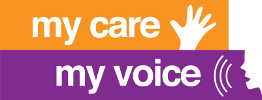NAT is working hard to tackle discrimination but but while this remains, this page is here to help you understand your rights and what to do if they’re not upheld.
Donate now: Support our work
Donate now: Support our work

It is an unfortunate fact that some people living with HIV still experience discrimination.

NAT is working hard to tackle discrimination but but while this remains, this page is here to help you understand your rights and what to do if they’re not upheld.
The Equality Act 2010 protects people in England, Scotland and Wales from being discriminated against on grounds such as race, sexual orientation and disability. As HIV is now defined as a disability from the point of diagnosis, this law means it is illegal to discriminate against people living with HIV, and it explicitly offers protection from discrimination in a variety of settings, including the workplace and in healthcare.
The lawbuilds upon the existing protections for people living with HIV that were in place under the Disability Discrimination Act, including new provisions against harassment. To find out more about the Equality Act 2010, read NAT’s thinking on human rights and discrimination.
For more information about your rights against discrimination when accessing health and social care services visit our My Care My Voice resource.
The Equality Act 2010 does not apply in Northern Ireland, but equality legislation - the Disability Discrimination (Northern Ireland) Order 2006 - also protects people living with HIV from discrimination. You can find out more by visiting the Equality Commission for Northern Ireland website
HIV-related discrimination at work is not common; however, if you feel you have experienced discrimination there are several courses of action you can take. You can complain informally to your employer (this is the most straightforward way of dealing with an issue if you have a good relationship with them) or you may choose to bring a formal complaint (if the action has been particularly severe or if you were not satisfied with the outcome of your informal complaint). The right action for you will depend on the type of discriminatory behaviour experienced, your relationship with your employer and your willingness to speak out.
If you are not able to resolve the problem with your employer directly, another option is to make a claim to an Employment Tribunal, but it is important to consider several factors before you do this. Making a claim can be very demanding so you should seek advice as whether you have a good chance of winning. You should also be aware that if you do decide to proceed with a claim then you must register your claim within three months (of the discrimination taking place).
If you are a member of a Trade Union, you should also contact them to ask for advice on how to resolve your complaint.
Further information can be found in NAT’s booklet HIV @ Work – Advice for employees living with HIV.
If you think that someone has discriminated against you because you have HIV then you should seek advice. A good place to start is by speaking to your local HIV support organisations, but you might also want to contact the Equality Advisory Support Services (EASS) who can give you advice on how to make a complaint and resolve the issue. It might also be helpful to get some legal advice - you can find your nearest Citizens Advice Bureau on the CAB website.
NAT is always keen to get feedback from people living with HIV. It’s good for us to know if our information and resources are helpful or if there other things you want to know. Your experiences can also inform our policy work and assist us in campaigning for people living with HIV to be treated fairly, and with dignity and respect. To get in touch with us, please visit our feedback page and let us know your thoughts.
NAT’s vital work can only continue with the generous help of our supporters. There are many ways you can support us without costing you a penny, such as getting involved in Press Gang, becoming an HIV Activist or signing up to a ‘no cost’ fundraising activity. If you’d like to support our work, click here to find out the different ways you can help.